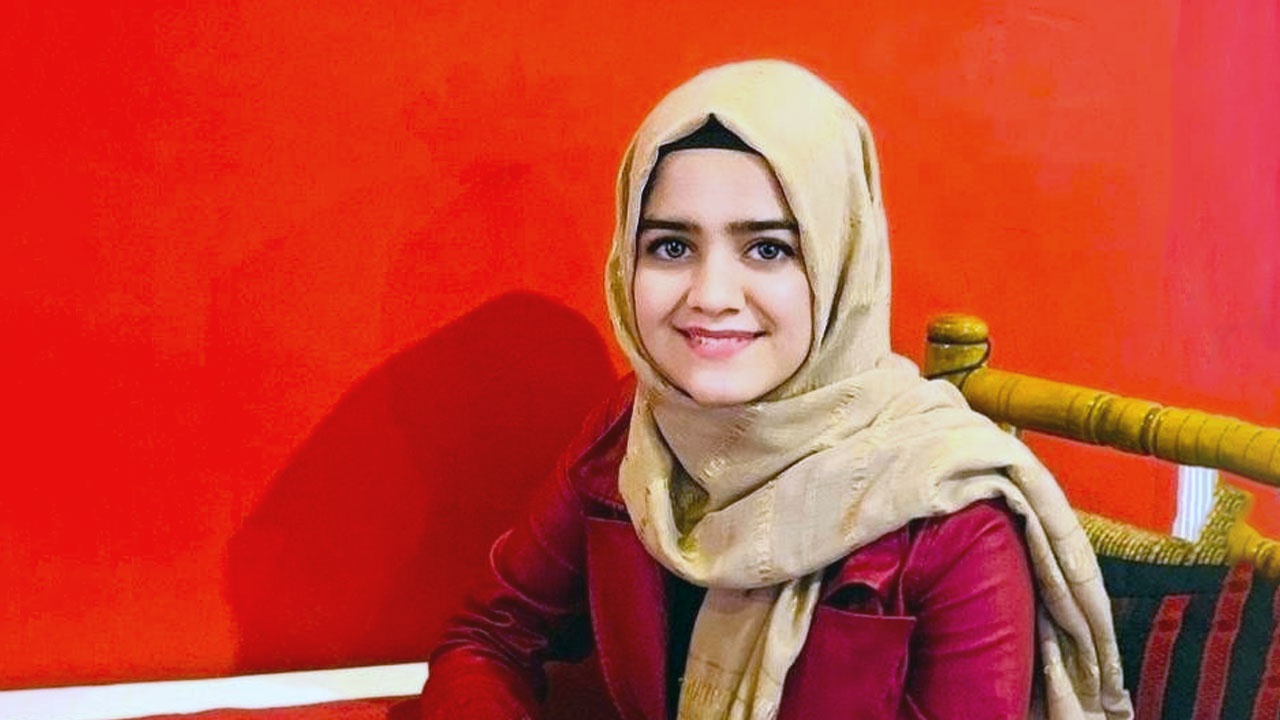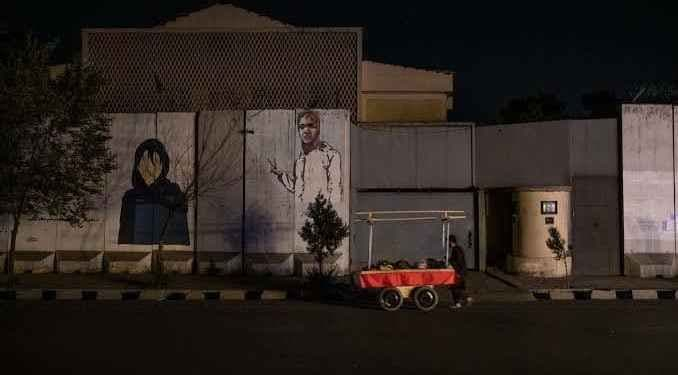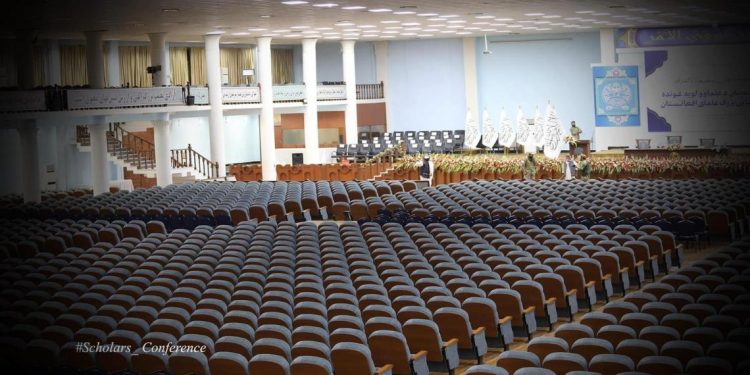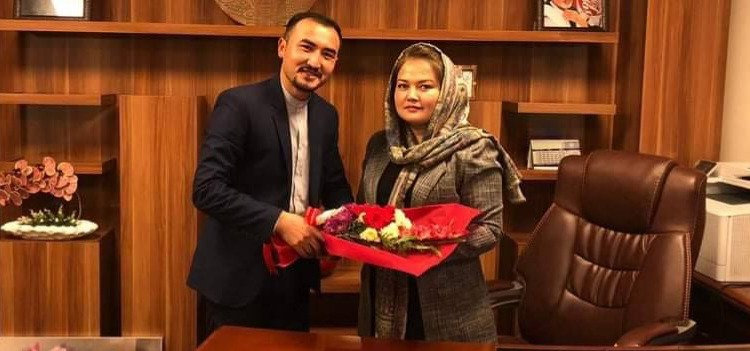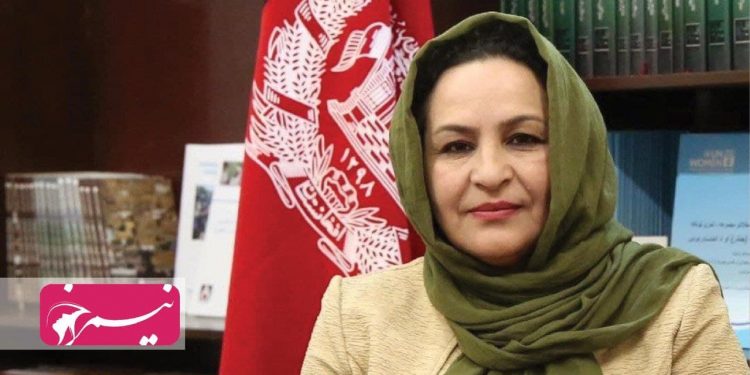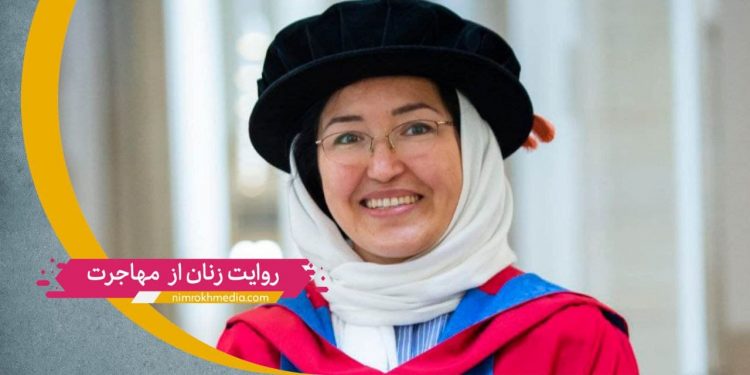Born in Abdullah Abad village of the Injil district in Herat province, western Afghanistan, 25-year-old Farida Razzaqi came into this world during a tumultuous time. It was the era when the Taliban were controlling Afghanistan, and their repressive rule had already taken root in Afghanistan. Back then, women were denied their basic human rights, and being a girl meant facing the brunt of a misogynistic and religious society.
Despite the challenges and obstacles that came her way, Farida was among the women who seized the opportunity that arose after the Taliban’s initial downfall. She was determined to pursue her studies, despite the difficulties that came with it. Her perseverance and hard work paid off, and she has now secured scholarships from four prestigious American universities simultaneously.
She has been granted a Master’s scholarship in Law from Harvard University, a Master’s scholarship in Climate and Society from Columbia University, a Doctoral scholarship in Law from the State University of New York at Buffalo, and a Master’s scholarship in Public Policy in the International Development Department from Cornell University.
Farida’s early education began in Atoon Herawi/Arifian school, where she completed her studies from the first to the fifth grade. She continued her education at Mahjooba Herawi High School, where she completed her sixth and seventh grades. Farida’s academic prowess earned her a place at the prestigious Afghan-Turk High School in Herat, where she studied from 8th to 12th grade after passing the entrance exam.
Farida’s upbringing was steeped in the rich literary traditions of Afghanistan, particularly the works of Saadi and Hafez. In her own words, “Our family was very interested in literature. The oldest poem I remember is the verses attributed to Molavi — O bouquet of flowers, welcome, you came with the smell of basil — which my maternal grandfather used to read in my ears every time he saw me until I was seven years old. In fact, all the children in our family grew up with this poem and my mother always recites Saadi’s poems. Before going to school, I used to go to the mosque to learn the Quran. After learning how to read the Quran, I read [Nizami Ganjavi’s] Panj Gunj, and Saadi’s Gulestan and Bustan, and I always recited poetry in cultural programs during school.”
Despite her love for literature, Farida remembers struggling with self-confidence and pusillanimity as a child. She speaks with a sweet Herati accent, recalling a specific incident from when she was around twelve or thirteen years old: “At the age of twelve or thirteen, I struggled with low self-confidence. I had been chosen, along with two others, to participate in a Persian poetry declamation program through school where the best declamator would be selected. However, on the day of the program, the school principal asked our teacher if we were capable of declamating well. Although our teacher responded positively, she also noted that I lacked confidence. The principal unthinkingly decided that I shouldn’t participate in the program, resulting in my first and most bitter experience with failure.”
That experience of failure has stayed with Farida to this day, serving as a constant reminder to remain resilient in the face of challenges.
“I remember that day vividly,” she recalls. “The principal, the teacher, and the two other participants all got into the car and left without me. I cried all the way home, but then I made a promise to myself that I would never give up.”
After a brief moment of reflection, Farida continues: “I remember when I was in seventh grade, the Afghan-Turkish school announced that they would be accepting a limited number of students through an entrance exam. I decided to take the test because I wanted to challenge myself, and thankfully, I passed.”
Throughout her journey, Farida’s parents have been her biggest supporters and role models. “When I was studying, my father would bring me a cup of tea and sit beside me, telling me to focus on my lessons and work towards a better future. He always encouraged me to stay positive and not worry about anything else,” Farida recalls. “And my mother, she taught me how to be strong in the face of challenges, always with a smile on her face, even during the toughest of times.”
It has been around ten years since those days for Farida. During this time, after passing the Kankor exam, she accomplished her desired field of study — law and political science — by achieving a first-grade score at Herat University. After passing the onerous, competitive Fulbright program exam, she left for the United States to pursue a master’s degree. Farida’s departure to the US occurred precisely two weeks before the fall of Kabul to the Taliban, and she has now completed her master’s degree in natural resource and environmental law at the State University of New York.
Farida had always dreamed of studying at Harvard University during her schooling years. She recalls that she and a group of her friends used to print pictures of Harvard University and imagine themselves studying there.
“I used to see pictures of [Harvard] and marvel at the number of books in its library. The very thought of it fascinated me and I made a promise to myself that someday, I would study at this university,” she reminisces.
Farida was in the midst of writing an article when she received the news that she had been accepted to Harvard University and three other universities.
“After receiving this news, I felt overjoyed and as though I were flying,” she says. “It was hard to believe that I had accomplished one of my most important dreams. However, deciding which university to attend has proven to be a difficult decision, as I am now at the point where I must determine where I can best achieve my goals.”
“Farida finds the joy and pride of the girls and people of Afghanistan in response to her success to be more satisfying than anything else.
“Even though this may be considered a personal achievement, beyond Afghanistan, I am known as an Afghan girl who has attained success,” said Farida. “It is my hope that my accomplishment will inspire other girls in my country to resist the restrictions of the Taliban, never lose hope, and continue striving for their goals.”
Like many Afghan people, Farida has been deeply affected by the Taliban in recent years. She reveals that at least three of her relatives — whose identities she prefers not to disclose — have fallen victim to the group in various incidents.
With the Taliban’s recent actions in Afghanistan, including the closure of schools, universities, and educational centers for girls, the group has stripped women of their basic rights and civil liberties. Farids is now fighting against the ignorance of the Taliban from another corner of the world. Through her achievement, she demonstrates that Afghan women and girls will never regress and will continue to push forward.
“The challenges that Afghan women have faced over the years have made us stronger and more resilient,” Farida strongly believes. “We will never surrender to the restrictions imposed by the Taliban group, and we will continue to fight for our rights.”
The fall of Kabul and the subsequent takeover of Afghanistan by the Taliban has been a nightmare for Farida, and it is an experience that she will never forget, she says.
“I believe that I experienced the worst pain that a human being can endure when Kabul fell to the Taliban,” she recalls those painful days. “For several nights, I was unable to sleep. While it was nighttime in America, it was early morning in Afghanistan, and my worries about the safety of my family, my loved ones, and my fellow Afghans kept me awake. The fear of something bad happening while I was asleep consumed me.”
“In spite of the difficult circumstances that we are facing, particularly for girls whose aspirations have been jeopardized, we cannot allow ourselves to be disheartened,” she concludes. “It is only by persevering in the face of adversity that we can prevent those who oppose science and knowledge from achieving their malevolent objectives.”

